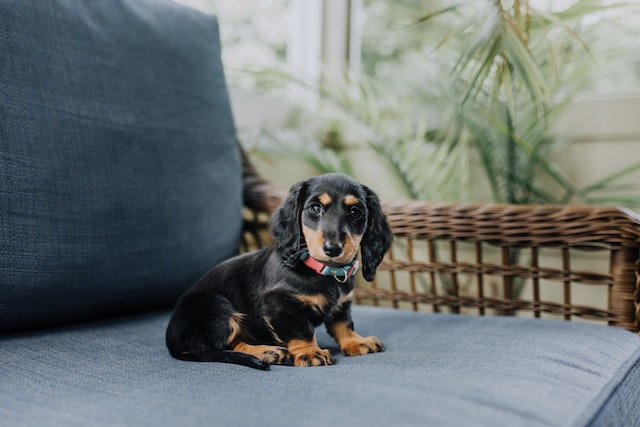- Dog Beaches
arrow_drop_down
- Dog Parks
arrow_drop_down
- Dog Camping Spots
arrow_drop_down
- Pet Sitting
arrow_drop_down
- Dog & Training Information
arrow_drop_down
- Dog Training
arrow_drop_down
- Dog Breeds
arrow_drop_down
- Dog Training
Introducing Your Puppy to Your Dog
- Dogs
- Puppy
-
Mar 23
- Share post

Bringing a new puppy into your home can be an exciting yet daunting experience, especially if you already have a dog. Introducing your new puppy to your resident dog requires patience, preparation, and a lot of positive reinforcement. A successful introduction can help ensure that both dogs will have a harmonious relationship, and that the transition for everyone involved is smooth.
Preparation is Key
Before introducing your new puppy to your resident dog, there are several important steps you should take. Firstly, make sure your resident dog is up to date on all their vaccinations, and that they are in good health. This will reduce the risk of any potential health issues arising. Additionally, it’s important to ensure that both dogs have their own space in the house, such as separate beds or crates. This will allow each dog to have their own space to retreat to if they need it.
Gradual Introductions
It’s crucial to introduce your new puppy to your resident dog gradually. This can help prevent any aggressive behaviour from your resident dog and will also give your new puppy time to adjust to their new surroundings. One way to introduce your dogs is to have them meet in a neutral location, such as a park. Make sure both dogs are on a leash and have a handler. Allow them to sniff each other from a distance and gauge their reactions. If all goes well, you can allow them to approach each other slowly, still on a leash. Keep the initial interactions short, positive, and supervised.
Positive Reinforcement
It’s important to use positive reinforcement when introducing your new puppy to your resident dog. Reward your resident dog for being calm and friendly around the new puppy, and reward your new puppy for being well-behaved around your resident dog. This can include giving treats, praise, and attention. According to a study, positive reinforcement can be more effective than punishment when training dogs.
Monitor Interactions
Even after the initial introductions, it’s important to monitor your dogs’ interactions closely. Don’t leave them alone together until you are confident that they can be trusted around each other. Keep an eye out for any signs of aggression or discomfort, such as growling, snapping, or cowering. These signs could indicate that your dogs need more time to adjust to each other.
Conclusion
Introducing a new puppy to your resident dog can be a fun and exciting experience, but it requires patience and preparation. Gradual introductions, positive reinforcement, and monitoring interactions are key to ensuring that both dogs have a harmonious relationship. Remember to be patient and take things slowly, and soon your dogs will be playing together like old friends.
Want to bring your dog to a café? Let them enjoy some tasty treats and drinks too?…
After moving to Brisbane, we’ve spent a lot of time exploring the area with the…
When choosing a pet that fits your lifestyle, cost and ease of care are important…
In Australia, many people own dogs or cats, but finding a hotel that allows pets can…
Last week, we took our dog to the beach, and after playing, he was covered in sand. We…
For pet owners, their own dogs are undoubtedly the best source of joy, capable of…
